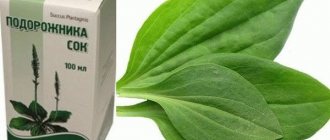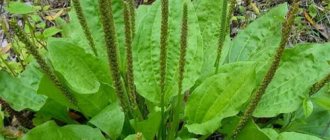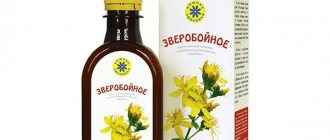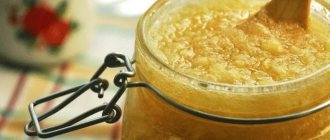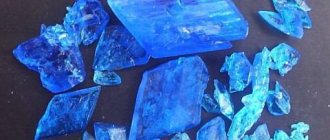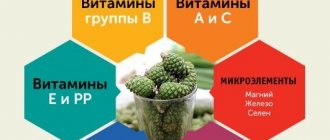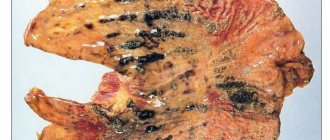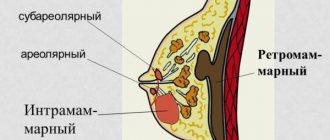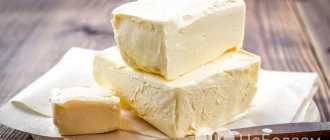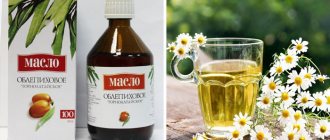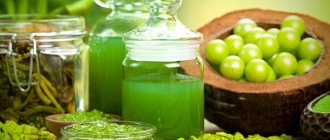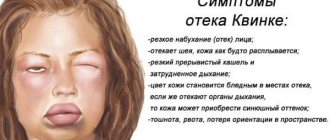Plant species
There are many types of plantain in nature, and no matter how useful it is, biology officially classifies it as a weed. However, this does not prevent the humble plant from being regularly used in various medicines and being a real hero of folk medicine.
Among the most common species in our country are:
- big;
- flea or flea infested;
- lanceolate;
- average;
- Asiatic.
This plant has a small but developed rhizome. Its leaves have a characteristic oval shape and are located in a basal rosette.
The flowers have the appearance of a long spike and can reach a height of 10 to 25 centimeters.
Plant preparations
In folk medicine, not only the leaves are used, but also the inflorescences, roots, and seeds of this herb. Moreover, each part of the plant has its own recommended collection period.
Collection
If you plan to collect only the leaves, you can do this throughout the summer until they begin to turn yellow.
I advise you to collect in dry and sunny weather, because leaves wet from rain or dew will begin to deteriorate very quickly.
It is better to dig up the roots of the plant in the fall. After this, clear them of soil, rinse and dry.
Seeds should be collected when they are fully ripe - from August to the end of September or beginning of October.
Here I have only briefly touched on the key points. Read more about harvesting plantain in our separate article.
Beneficial effects of plantain
This plant is truly universal: it can be used as food and used as compresses, it is equally useful for adults and children.
Rhizomes
The root of the plant contains substances that have analgesic and anti-inflammatory effects. Tinctures prepared from the roots are used to relieve toothache, as well as periodontal disease and herpes.
Leaves
The leaves of the plant are famous for helping to stop bleeding and are often used for cuts and bruises: just apply them to the wound.
This part of the plantain contains:
- potassium;
- glycosides;
- alkaloids;
- polysaccharides;
- tannins;
- chlorophyll;
- vitamin C;
- vitamin K.
Fresh leaves can also be used in cooking, for example by chopping them and adding them to a green salad.
Drying leaves does not require special skills or equipment. It is important to find a place for this purpose with good ventilation and protected from natural precipitation. Attics and sheds are ideal. The leaves need to be spread on the paper in a thin layer and turned over periodically. As soon as you notice that the cuttings have begun to crack and form husks, you can store the raw materials in fabric bags.
The shelf life of such preparations is about two years. They need to be kept in a dry place, away from direct sunlight and strong humidity.
Seeds
Plantain seeds contain essential oil, oleic acid and various organic compounds that have the following effects:
- heal cuts and abrasions;
- disinfect wounds;
- relieve an allergic reaction;
- reduce pain;
- have an expectorant effect;
- help stop bleeding;
- promote tissue regeneration;
- fight inflammation;
- protect against bacteria;
- have a general strengthening effect.
Leaves
As previously mentioned, the medicinal properties of plantain are the reason not only for its popularity in medicine, but also for the fact that almost all residents of our region know about this plant.
The source of these properties are the leaves of the plant, which can be used without additional processing. This works great for situations like wounds, ulcers and boils. To do this, simply take a fresh plantain leaf and apply it to the problem area of the skin.
Read here Ivan tea: 130 photos of growing, drying and preparation. How to brew and drink Ivan tea correctly. What is useful in this plant?
This is due to the chemical composition of the leaves, namely the substances and vitamins they contain. And these are organic acids, alkaloids, vitamins of three groups, saponins and much more.
No less interesting is that plantain seeds also have a very solid composition. They have a huge content of protein, fatty oils, and even a solid set of amino acids. Despite the fact that the leaves are most actively used, the seeds also have their uses.
Use of the plant
Let's figure out what specific diseases plantain can be used for.
It is perfect for colds, coughs, bronchitis. It is an effective expectorant, helps reduce pain due to its enveloping properties, thins and removes mucus.
Plantain can also provide serious help for diseases of the stomach and intestines, such as:
- gastritis with low stomach acidity;
- ulcers;
- gallbladder disease.
It can also improve appetite and normalize digestion.
When losing weight
This medicinal herb can also be used during diets.
Plantain infusions can:
- remove cholesterol;
- improve metabolism;
- cleanse the body of harmful toxins.
Plantain compresses
Using plantain externally, you can achieve the following results:
- disinfect wounds;
- cure boils;
- fight acne;
- relieve itching from insect bites;
- reduce spurs;
- reduce joint pain.
Depressant
Plantain and decoctions from it are often used as a natural sedative, which is recommended for:
- stress;
- loss of strength;
- sleep problems
Plantain is also capable of:
- relieve swelling;
- reduce headaches;
- improve the functioning of the cardiovascular system.
Benefits for women
Plantain can also be useful in gynecology. Infusions from this plant can be used for douching for:
- inflammation;
- cervical erosion;
- heavy bleeding.
In addition, there are many home cosmetology recipes using plantain: from rinses to strengthen hair to face masks.
In hand creams, plantain extract is often used in combination with celandine for greater effectiveness and treatment of dry, chapped skin.
Use during pregnancy
In the absence of contraindications, plantain decoctions can also be taken during pregnancy, especially in its early stages.
Remedies from this plant will help with:
- colds;
- digestive problems;
- constipation
Attention! Before using natural plantain decoctions, it is strongly recommended to consult with your doctor.
Oncological diseases
It would be wrong to believe that plantain and decoctions from it are capable of single-handedly overcoming such a terrible disease as cancer. However, in some cases, strictly following the instructions of doctors and in combination with full-fledged drug treatment, natural preparations from plantain can alleviate the course of the disease.
It is believed that this plant may provide some benefits for stomach or intestinal cancer.
Main benefit
The main healing quality of plantain is manifested in its ability to relieve inflammation and stop bleeding. In addition, plantain has a bactericidal effect and heals wounds well. If there are wounds, fresh cuts or scratches on the skin, you need to apply a plantain leaf - the healing plant will relieve pain and promote rapid tissue restoration.
What other health benefits does plantain provide? We list the beneficial effects characteristic of this plant:
- this herb improves appetite and normalizes digestion processes. With the help of plantain, stomach diseases (gastritis, bloating, ulcers, colitis), diseases caused by low acidity are treated;
- plantain can be used to strengthen the immune system. It is used in the complex treatment of serious illnesses such as leukemia and tumor diseases. By using plantain for the treatment of cancer, you will protect your internal organs from the negative effects of radiation therapy and chemistry;
- This plant is also used to cure respiratory diseases, such as bronchitis, tuberculosis, pneumonia (pneumonia);
- The healing qualities of juice from roadweed leaves and other preparations based on this herb have a positive effect on the nervous system. Plantain calms and relaxes, lowers blood pressure and tones the body;
- Plantain leaves are an effective remedy for kidney disease and liver problems. The healing qualities of plantain leaves relieve inflammation of the eyes: such therapy can prevent many problems with the eyes and vision;
- Traditional medicine advises using this plant in the treatment of hemorrhoids. Psyllium seeds can be used for diarrhea and bleeding. If consumed correctly, they will have a laxative effect;
- with the help of plantain, burns and purulent wounds on the skin are healed;
- In cosmetology, this herb is used to improve skin condition and healthy hair. Plantain-based masks prepared at home have a good effect. Such products help strengthen and restore hair follicles. And the beneficial properties of this plant for the face are manifested in eliminating aesthetic defects, giving freshness to the skin and evening out the color.
By understanding the healing qualities and contraindications inherent in plantain juice, decoctions, lotions and medicinal mixtures from the leaves of this herb, you will have the opportunity to maintain your body and appearance in good shape, support your immune system, and save yourself from the high costs of purchasing medications. Herbal medicine is available to everyone.
Contraindications and harm
For certain ailments, using plantain is not recommended. As a rule, we are talking about the following diseases:
- chronic diseases of the gastrointestinal tract in the acute phase;
- gastritis with high acidity;
- problems with blood clotting;
- allergy to plantain.
Let me remind you that side effects from using this plant may include the following:
- nausea and vomiting;
- abdominal pain;
- diarrhea;
- dizziness.
Carefully monitor your body's reaction to plantain preparations, and if you experience any suspicious sensations or deterioration in your health, consult a doctor immediately.
Use in folk medicine
If you want, you can find a ready-made plantain tincture in almost any pharmacy, but if you want, you can prepare the simplest remedies yourself.
Decoctions and infusions
When making decoctions, you need to take into account that each type of such remedy has its own characteristic features and may be more effective for some diseases and less useful for others.
For example, a decoction of plantain flowers copes well with stomach cramps and is generally often used as a pain reliever.
A decoction from the rhizome of the plant should be drunk for colds and coughs. In order to make the taste of the drug more pleasant for children, I advise you to combine it with regular tea and honey.
Plantain in combination with nettle has a very strong hemostatic effect, so both plants are especially useful for nosebleeds or uterine bleeding in women.
To treat abscesses and ulcers, as well as to fight skin parasites, it is better to use strong infusions.
Decoction
To prepare a classic plantain decoction you will need:
- two tablespoons of dry leaves;
- a glass of boiling water.
The leaves of the plant need to be poured with hot water and allowed to brew for a couple of hours.
Before use, the liquid should be carefully filtered, and then taken 2 tablespoons several times a day.
You will find other recipes and tips for brewing plantain in our separate article.
Alcohol tincture
To normalize blood pressure and uterine bleeding, you can use an alcohol tincture. To prepare it you will need:
- dry plantain leaves;
- vodka.
Grind the dried plant and mix it with alcohol at a ratio of 2:1.
Mix the mixture well and pour it into a glass container with a tight-fitting lid. Leave for 15-20 days, then strain.
This tincture should be taken one teaspoon before meals.
Juice from fresh leaves
To treat wounds and reduce suppuration, you can use plantain juice, which has high antibacterial properties.
Fresh mashed plant can be used as a compress on bruises and abrasions:
- 3 tablespoons chopped leaves;
- 2 tablespoons of honey.
Mix the ingredients, place in a suitable jar with a lid and let it brew in a warm room for 3-4 hours.
The mixture can then be used as a compress or lotion.
Seeds
Traditional medicine offers us many recipes that use plantain seeds.
Due to the formation of mucus, the nucleoli help with diseases of the respiratory and digestive organs. They are recommended for use both for ordinary cough and constipation, and for more serious diseases: hemorrhoids and even diabetes.
It is believed that plantain seeds can also help in the treatment of infertility in both men and women. They promote more active production of hormones and sperm, and also improve the menstrual cycle.
When coughing, for greater effectiveness, it is recommended to mix the infusion of seeds with a decoction of leaves.
If you steam the seeds and rub them a little, they can be used as compresses for wounds and abrasions.
Seed decoction
To prepare the decoction you need:
- 1 tablespoon of seeds;
- half a glass of boiling water.
Pour boiling water over the seeds and wait for the mixture to cool.
The decoction can be taken orally, either strained or unfiltered, one tablespoon in the morning.
This mixture improves digestion, helps remove toxins from the body, and reduces bloating.
You can also learn about the benefits and harms of this plant from the video.
Properties of psyllium seed husk
Separately, the husk of plantain seeds is isolated, which is formed during their processing. It contains many useful substances, so its properties are used:
- to reduce low density lipoprotein levels and bad cholesterol levels in the body;
- to maintain the body's defenses during radiation therapy;
- to increase immunity in the off-season;
- to reduce blood pressure;
- in the treatment of heart and vascular diseases;
- in the treatment of gastrointestinal pathologies (in particular, for the treatment of irritable bowel syndrome).
The husk promotes the accelerated release of toxins from the body's cells and helps normalize the balance of intestinal microflora.
It is not taken by itself; if it is a powder, it is mixed into water or kefir. This remedy is drunk 15 minutes before meals three times a day; if a person does not have dinner, then the third time should be taken before bed. The drug must be additionally washed down with a large amount of water - at least a glass.
And the shells from the boxes and the shell of the seeds, that is, not processed husks, are suitable for preparing infusions and decoctions.
Plantain seeds, the medicinal properties and contraindications of which were discussed in this article, also have properties that tonic the body, stimulate appetite, and increase hemoglobin. In any case, do not follow it thoughtlessly, before using prescriptions, study all contraindications or consult a doctor.
